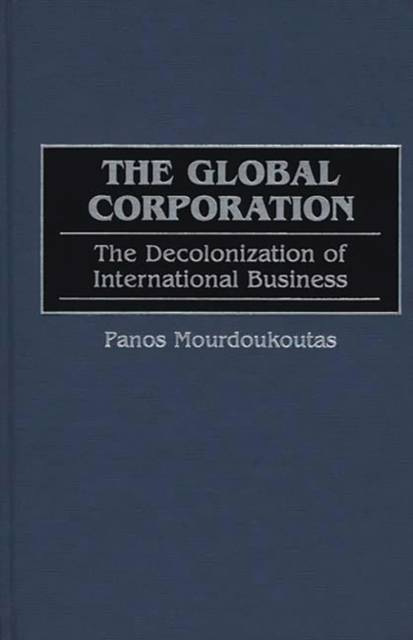
- Afhalen na 1 uur in een winkel met voorraad
- Gratis thuislevering in België vanaf € 30
- Ruim aanbod met 7 miljoen producten
- Afhalen na 1 uur in een winkel met voorraad
- Gratis thuislevering in België vanaf € 30
- Ruim aanbod met 7 miljoen producten
The Global Corporation
The Decolonization of International Business
Panos MourdoukoutasOmschrijving
The globalization of business has ended corporate colonialism in international commerce, and out of this has emerged what the author calls the global corporation. Differing in many important ways from the now obsolete multinational corporation it is replacing, the global corporation is actually a network of independent entrepreneurs, liberated from the control of headquarters, and thus able to implement a new vision of the overall enterprise, its competitive strategies, and how it coordinates and communicates within itself. The author carefully delineates the subtle distinctions among concepts that are often taken, mistakenly, as synonyms for globalization, such as multinationalization, and elicits the implications these distinctions have for the management of international business.
Nurtured in the post-GATT era, and especially in the last twenty years, the model of the global corporation describes an international business organization in which the parent company treats each national market as a part of a single, integrated regional or global market, setting up autonomous divisions or forming alliances and partnerships to handle each product and business line for the entire region or entire world market. In this network organization, the parent company plays the role of support office for the individual divisions, which are treated as equals. The structure consists of the support level, which handles company-wide concerns, and unit level, which handles unit-specific concerns. The two-level management is supported and re-enforced by a corporate vision and by efficient and effective communication and incentive structures.Specificaties
Betrokkenen
- Auteur(s):
- Uitgeverij:
Inhoud
- Aantal bladzijden:
- 160
- Taal:
- Engels
Eigenschappen
- Productcode (EAN):
- 9781567202410
- Verschijningsdatum:
- 30/01/1999
- Uitvoering:
- Hardcover
- Formaat:
- Genaaid
- Afmetingen:
- 156 mm x 234 mm
- Gewicht:
- 403 g

Alleen bij Standaard Boekhandel
Beoordelingen
We publiceren alleen reviews die voldoen aan de voorwaarden voor reviews. Bekijk onze voorwaarden voor reviews.











